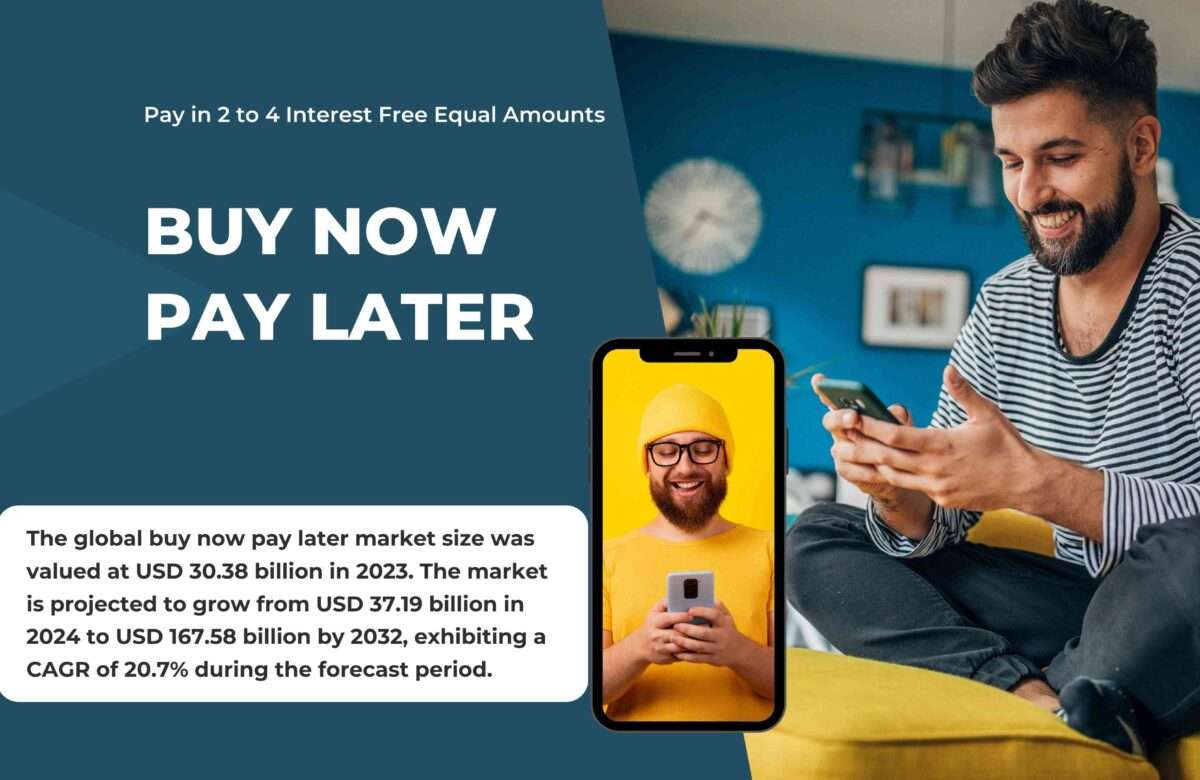- 22 October 2023
- No Comment
- 1745
Decoding the Dynamics of $179 Billion Fintech World

As of 2023, the world of fintech is worth a staggering $179 billion and set to reach $400 billion by 2027, buzzing with around 30,000 startups that are driving
groundbreaking innovations. Six out of every 10 mobile users prefer finance apps over websites, signaling a shift in how we interact with our finances. Visa stands tall as the largest fintech company, boasting a valuation that nearly touches the half-trillion mark in USD.
Today, let’s embark on an exciting exploration into the heart of a transformative force that is reshaping the financial services industry—Fintech. As we navigate through this dynamic intersection of finance and technology, we’ll unveil the innovations, trends, fascinating stats and the profound impact Fintech has on businesses, large and small.
I’m Nabeel Shaikh, a seasoned Chartered Accountant with a wealth of experience spanning investment banking, management consulting, and entrepreneurship, and I’m thrilled to be your guide on this exhilarating journey.
What is Fintech?
Defining Fintech: Where Finance Meets Technology
Fintech is the ingenious fusion of two words: Finance and Technology. It’s a revolutionary force that leverages cutting-edge technologies to reshape and enhance how financial services are delivered, accessed, and experienced.
Imagine your traditional banking processes—transactions, investments, loans—now turbocharged with the wizardry of technology. Fintech isn’t a single innovation but a collection of them, each designed to make your financial life more accessible, efficient, and user-friendly.
The Essence of Fintech: Accessibility and Innovation
Accessibility:
Fintech aims to bring financial services to your fingertips, quite literally. Through mobile apps and online platforms, it enables you to manage your money, make transactions, and explore investment opportunities anytime, anywhere.
Innovation:
At its core, fintech is about thinking outside the traditional financial box. It introduces novel ways of handling everything from payments to investments, challenging the status quo and fostering a culture of constant innovation.
Why Fintech Matters: The Big Picture
Democratizing Finance: Fintech breaks down barriers, making financial services accessible to a broader audience. No longer confined to the elite, anyone with a smartphone can be part of the financial game.
Efficiency Boost: Traditional finance can be sluggish. Fintech streamlines processes, automates tasks, and introduces real-time analytics, making financial operations more efficient.
Innovation as Standard: Fintech encourages a culture of continuous innovation. Businesses, large and small, are pushed to adapt and develop creative financial solutions to stay ahead.
Harnessing Fintech for Business Advancement
Fintech is playing an increasingly important role in business. It can help businesses to:
- Improve customer service
- Reduce costs
- Increase efficiency
- Expand into new markets
- Develop new products and services
Improve Customer Service
Imagine a world where your customers experience swift, secure, and seamless transactions. Fintech makes this a reality by streamlining financial processes. From hassle-free payments to personalized financial solutions, businesses can elevate their customer service game, leaving clients delighted.
Reduce Cost
Every business seeks efficiency, and Fintech is the wizard that can make it happen. By automating financial tasks, minimizing paperwork, and optimizing processes, Fintech paves the way for cost savings. This newfound financial agility allows businesses to allocate resources more strategically.
Increase Efficiency
Time is money, and Fintech understands this well. With automated workflows, real-time analytics, and innovative tools, businesses can operate more efficiently. Tasks that once took hours can now be accomplished in a fraction of the time, giving teams the bandwidth to focus on what truly matters.
Expand into New Markets
Expanding into new markets can be a daunting prospect, but Fintech acts as a reliable ally. Through digital platforms and borderless transactions, businesses can explore untapped markets with confidence. The financial world becomes a playground without borders, fostering global growth.
Develop New Products and Services
Innovation is the lifeblood of progress, and Fintech injects a dose of it into businesses. The ability to adapt and develop new products and services is a game-changer. Fintech opens doors to creative financial solutions, allowing businesses to stay ahead in the ever-evolving market.
Fintech Transformations: Empowering Businesses
Types of businesses that have taken the most benefit from fintech include:
E-commerce Businesses
With Fintech, online shopping isn’t just about picking cool stuff; it’s about the awesome payment journey. Think mobile payments and digital wallets, all working together to make your checkout experience a breeze.
The online shopping world is booming! By 2026, it’s predicted to hit a whopping $8.1 trillion. That’s a lot of zeroes! About 24% of your retail therapy is expected to happen online. And when it comes to ruling the e-commerce kingdom, Amazon takes the crown with a mighty 37.8% market share. But let’s not forget the other players like Walmart, eBay, and AliExpress – they’re the cool spots everyone’s clicking into.
Financial Services Companies
Fintech is the secret sauce behind cool stuff like robo-advisors and peer-to-peer lending platforms. It’s reshaping the financial landscape, giving companies the tools to level up their customer service game, cut down on costs, and be the champs in a competitive market.
The global financial services market is a whopping $20.49 trillion as of 2020. And get this, by the end of 2021, it was expected to hit $22.52 trillion! Western Europe is taking the lead with 40%, while North America follows closely with 27% of the global financial services pie. The global financial services making up about a quarter of the entire world’s economy. Now that’s what you call financial firepower!
Small Businesses
There are 582 million entrepreneurs rocking the planet—small businesses. For them, Fintech isn’t just a tool; it’s a lifeline that’s unlocking doors that were once firmly shut.
Access to financial services, from loans to lines of credit, is now at their fingertips, thanks to Fintech. It’s like a magical bridge connecting small businesses to the resources they need for explosive growth. And those pesky tasks of accounting and payroll that used to drive them nuts? Fintech swoops in and automates them, giving small business owners the freedom to focus on what they do best – nurturing their business baby.
According to the World Bank, a whopping 90% of businesses worldwide are SMEs (that’s Small and Medium-sized Enterprises). They’re the powerhouse behind 50% of the world’s jobs! In USA, there are a staggering 33.2 million small businesses holding down the fort.
How Small Businesses Benefits From Fintech Solutions 
Access to Capital: Fueling Growth
Small businesses often face hurdles in accessing capital for expansion. Fintech steps in as a game-changer, providing online loans and lines of credit tailored to the specific needs of small businesses. This financial infusion becomes a catalyst for growth, enabling businesses to scale and thrive.
Cost Reduction: Streamlining Operations
In the realm of small businesses, every penny counts. Fintech acts as a financial ally by automating tasks like accounting and payroll, leading to significant cost reductions. Additionally, fintech tools minimize transaction costs, allowing businesses to allocate resources more strategically.
Improved Efficiency: Automating Processes
Efficiency is the heartbeat of small businesses, and fintech tunes it to perfection. Automation becomes the cornerstone, simplifying tasks and streamlining processes. Fintech companies offer tools for customer relationship management (CRM) and marketing campaigns, empowering small businesses to operate seamlessly.
Expanded Market Reach: Breaking Barriers
Fintech opens doors for small businesses to transcend geographical constraints. Selling products and services online becomes more accessible through fintech solutions. Payment processing solutions provided by fintech companies facilitate smooth transactions, expanding the market reach for small businesses.
Importance of Fintech in B2B Businesses
Fintech is also playing an increasingly important role in B2B* (Business-to-business) business. For example, fintech companies offer a variety of solutions to help businesses with their supply chain management, trade finance, and invoice financing. Fintech can also help businesses to manage their risk and fraud.
Supply Chain Management: Ensuring Seamless Operations
Fintech companies step in to enhance supply chain management for businesses. Through innovative solutions, they optimize processes, minimize delays, and ensure a seamless flow of goods and services, contributing to operational excellence.
Trade Finance: Facilitating Global Transactions
In the realm of international trade, fintech has become a valuable ally. Offering trade finance solutions, fintech companies simplify transactions, mitigate risks, and foster smoother cross-border trade interactions for businesses.
Invoice Financing: Unlocking Cash Flow
Cash flow is the lifeblood of businesses, and fintech recognizes this crucial need. Fintech companies provide invoice financing solutions, allowing businesses to unlock the value of their outstanding invoices, ensuring a steady and reliable cash flow.
Risk and Fraud Management: Safeguarding Business Interests
In the digital age, businesses face evolving risks and fraud threats. Fintech steps in with sophisticated tools and technologies to manage risks and combat fraud effectively. This proactive approach safeguards the financial interests of businesses.
The Fintech Impact: Accessible, Affordable, and Efficient
Fintech’s overarching influence extends beyond individual businesses; it’s reshaping the financial services landscape. With the potential to make financial services more accessible, affordable, and efficient, fintech is a driving force in the modern business ecosystem.
B2b* refers to transactions or relationships between two businesses rather than involving individual consumers. In B2B scenarios, one business provides goods or services to another, forming a commercial exchange or partnership.
Real-world Applications of Fintech in Businesses Today
Mobile Banking
Banks have embraced the mobile revolution, offering feature-packed apps that put your financial world in the palm of your hand. Check your balance, transfer funds, and pay bills—all at your fingertips. It’s no wonder mobile banking has become a go-to choice for consumers seeking convenience.
The stats tell a compelling story. With over 7.1 billion people owning mobile phones, the rise in smartphone users has triggered a surge in mobile banking subscribers. Six out of every 10 mobile users prefer finance apps over websites, signaling a shift in how we interact with our finances.
The numbers don’t lie—digital banking app downloads skyrocketed by 54% in 2022, surpassing a staggering 26 million. And the journey is far from over. Projections by Market Research Future and Globe News Wire suggest that by 2030, the mobile banking market will reach a whopping $3.47 billion in revenue.
Peer-to-Peer Lending
Peer-to-peer lending is like borrowing money from a friend, but instead of asking one person, you ask a bunch of people online. These people, who could be anywhere in the world, decide if they want to lend you some money. It’s a way for individuals to help each other out with loans, kind of like a community lending system.
Businesses, in particular, are reaping the rewards of this alternative lending model. Quick, easy, and devoid of cumbersome banking intermediaries, peer-to-peer lending provides a lifeline for enterprises in need of swift access to funds.
Now, let’s talk numbers. The global peer-to-peer (P2P) lending market is on a trajectory of remarkable growth. From $107.84 billion in 2022, it’s projected to soar to $143.64 billion in 2023, boasting a robust compound annual growth rate (CAGR) of 33.2%.
However, as the world grapples with the aftermath of the Russia-Ukraine war, the trajectory of global economic recovery from the COVID-19 pandemic faces disruptions, at least in the short term. Despite these challenges, the peer-to-peer lending revolution continues, offering a decentralized and efficient financial avenue that connects individuals and businesses in unprecedented ways.
Robo-Advisors
Imagine having a digital helper for your investments – that’s what robo-advisors are! These are like smart tools that give advice on where to invest your money and help manage your investment portfolio. If you’re new to investing or don’t have the time to dive deep into it, robo-advisors can be your digital sidekick.
Now, about the numbers – experts predict that by 2023, the total value of investments managed by robo-advisors will be a whopping $2.76 trillion. And this digital trend is growing fast; they estimate an almost 14% increase every year, reaching a colossal $4.66 trillion by 2027. It’s like having a financial wizard in your pocket, making your money work smarter for you!
Cryptocurrency
Cryptocurrency is like digital money that you can use to buy stuff or invest. It’s not like the money you see in your wallet but exists only in the digital realm. What makes it special is that it’s not controlled by any government – it’s like money for the internet!
Now, why are businesses into it? Well, these digital coins are like secret codes, making them super secure. Businesses love that because it opens the door to all sorts of new and cool ways of handling money.
Talking numbers, the total value of all cryptocurrencies around the globe is a massive $1.1 trillion. To put it in perspective, Bitcoin, one of the big players in this digital money game, holds about 40% of that, which is a bit less than it used to be in 2021. It’s like a high-stakes digital treasure hunt, and everyone’s trying to find the next big thing in the crypto world!
As fintech continues to evolve, businesses of all sizes stand to gain from its transformative capabilities, ensuring a future where financial operations are not just efficient but also adaptive to the dynamic needs of the business world.
Navigating the Fintech Horizon: Insights and Advice from Nabeel Shaikh
In the ever-evolving landscape of fintech, the journey has been nothing short of remarkable. As we navigate through the corridors of innovation and financial transformation, it’s crucial for both seasoned investors and newcomers to recognize the profound impact fintech is making. From simplifying transactions to revolutionizing the way we access financial services, the potential is boundless.
For investors, it’s an opportunity to explore diverse avenues, from mobile banking to peer-to-peer lending. Keep an eye on the dynamic market, where the largest players, like Visa, wield significant influence.
For entrepreneurs and businesses, the message is clear—leverage fintech to your advantage. Improve customer service, cut costs, enhance efficiency, and tap into new markets. Whether you’re a small business looking for capital or a giant in the corporate world, fintech offers tools that can reshape your strategies.
In conclusion, as we witness fintech’s global surge with a $179 billion valuation, let’s not just observe; let’s participate. Embrace the innovation, stay informed, and consider the wise counsel of Nabeel Shaikh—an industry expert who understands the pulse of finance in the digital age. The future of fintech is here; be part of the journey!




